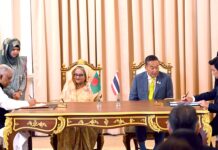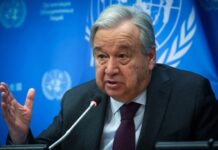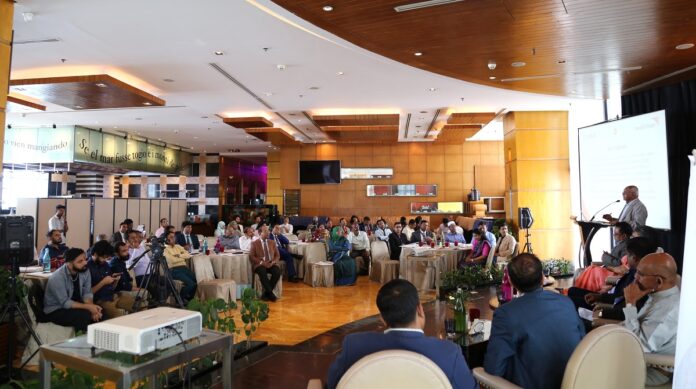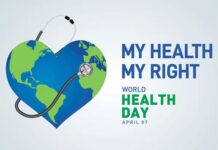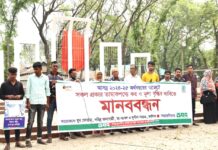Dhaka, Thursday, February 29, 2024:
The engagement of community people is crucial to ensure functional community clinic as it is a public-private partnership, said Professor Dr. Syed Modasser Ali, Chairman, Community Clinic Health Service Trust (CCHST), under the Directorate General of Health Services (DGHS), Ministry of Health and Family Welfare.
“Where the Community Group (CG) is active, there the community clinic is effective and functional. Strengthening CG is a must to activate and functionalize the community clinics,” he added.
He made these remarks on Thursday at a workshop, at a city hotel in Dhaka, on the “Role of Community Clinics and Local Government Institutions to Sustain Primary Health Care and Nutrition Services” organized by World Vision Bangladesh (WVB) under USAID’s Nobo Jatra Project II (NJP II).
Dr. Md. Quiume Talukder, Line Director, Community Based Health Care (CBHC), CCHST, presided over the workshop. Suresh Bartlett, National Director, WVB, inaugurated the workshop with his opening remarks while Lima Hanna Daring, Chief of Party (CoP), Nobo Jatra Project II, shared the brief overview of the project.
Dr. Mohammad Mahbubur Rahman, Director General (Acting), Bangladesh Nutrition Council (BNNC); Dr. Mahbub Arefin Rezanur, Divisional Chief (Field), Institute of Public Health Nutrition (IPHN); and Mustapha EL Hamzaoui, Director- Humanitarian Assistance Office, USAID Bangladesh, and Prof. Dr. Nahid Ferdausi, Director, Sheikh Fazilatunnessa Mujib Eye Hospital & Training Institute, Gopalganj, were present as special guests.
Upazila and Union Parishad Chairman, Civil Surgeons of Khulna and Satkhira Districts, Khulna Divisional Health Department head, health officials, representatives of NGOs, journalists among others were also present. 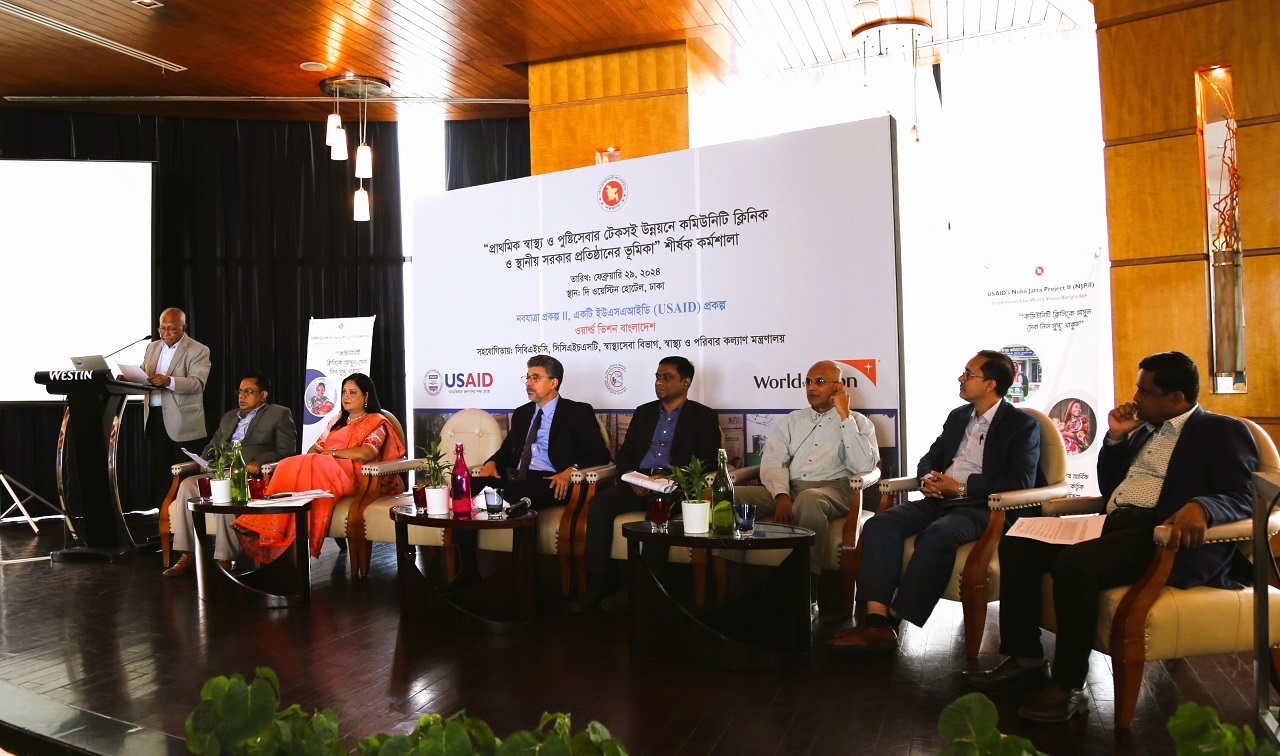
Suresh Bartlett, National Director, WVB, thanked USAID and the people of the United States of America for funding for sustainability in Bangladesh through Nobo Jatra Project through an effective partnership and collaboration with WVB.
Lima Hanna Daring, Chief of Party (CoP), NJP II, shared a brief overview of the project funded by USAID.
She informed that minimum dietary diversity of women has increased from 49.0% to 53.6% in the NJP II area in four Upazilas under Satkhira and Khulna Districts. 40.9% mothers received at least four Antenatal Care (ANC) in the NJP area which was 24.1% in the baseline of the project in 2017. Due to the project intervention, exclusive breastfeeding has increased to 57.5% from 29.2%, she added.
Md. Rafiqul Islam, Deputy Secretary, Health Services Division, Ministry of Health and Family Welfare, in his opening remarks said “We want to transform the Community Clinics to Smart Community Clinics by 2041.”
Md Rafiqul Islam informed that a number of 13,949 Community Health Care Providers (CHCP) are going to be permanent government service holders and get salaries under Grade-14 of the government.
The Chair of the event, Dr. Quiume Talukder, Line Director, CBHC, said “Community Clinic (CC) is an institution of providing health education but not a medication providing entity. CC is mainly referring patients to formal hospitals.”
Bangladesh is proud of Community Clinic which is a brainchild of Prime Minister Sheikh Hasina, as it is recognized by the United Nations and the model is adopted by many countries.
Attending the workshop as a special guest, Dr. Mohammad Mahbubur Rahman, Director General (Acting), Bangladesh National Nutrition Council (BNNC), thanked World Vision Bangladesh and said Khulna Division in Bangladesh is always first in health indicator.
Mustapha EL Hamzaoui, Director- Humanitarian Assistance Office, USAID Bangladesh, said “Bangladesh is on the pick of success. We continue collaboration with the Bangladesh Government. Through Nobo Jatra Project, a lot of successes have been achieved in reducing malnutrition, stunting, wasting and underweight in Southwestern Bangladesh.”
Speaking about sustainability, Mustapha EL Hamzaoui, said “Sustainability is the paramount of success. Thus, the local grassroots organizations need to be strengthened. This is why, 25% of the budgets of USAID is going to strengthening local organizations.”
Nobo Jatra Project II (NJP II) at a glance
USAID’s Nobo Jatra Project II is a 24 months (October 1, 2022 – September 30, 2024) sustainability and system-strengthening phase of Nobo Jatra Project (NJP). World Vision Bangladesh is implementing the project to sustain and solidify key service delivery systems that build the resilience of vulnerable populations in southwest Bangladesh.
WVB has been implementing the project in close coordination with the Government of Bangladesh (GoB) to ensure continuity in sustaining and solidifying the key outcomes facilitated under NJP and ensuring sustainability and greater resilience of 66,000 unique participants.
Of the total project participants, 5,074 are pregnant women; 10,313 children U-2; 19,372 ultra-poor people; 11,048 agriculture-smallholder producers; 1,678 local service providers; 11,431 Alternative Income Generating Activity (AIGA) participants and 7,084 value chain producers.
Of the 1,678 local service providers- 100 are Village Agents (VAs); 80 Gold Star Members (GSMs); 199 Lead Farmers; 889 Sub-lead Farmers and 410 Input/output Retailers are working to sustain various services to the community people.
To build the overall resilience of targeted participants, NJP II integrates interventions in Maternal Child Health and Nutrition (MCHN), Agriculture and Alternative Livelihoods, with gender equality, good governance, social accountability and market systems development as intersectional themes.


